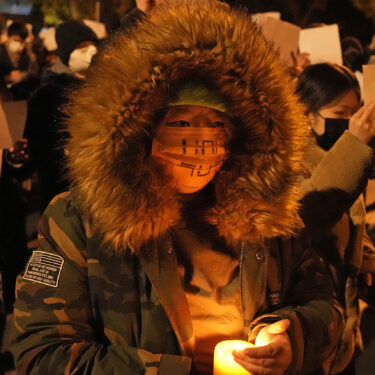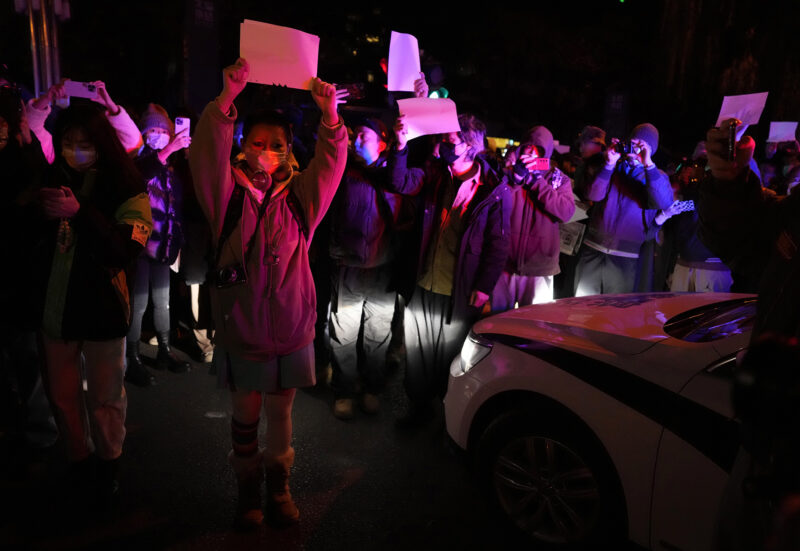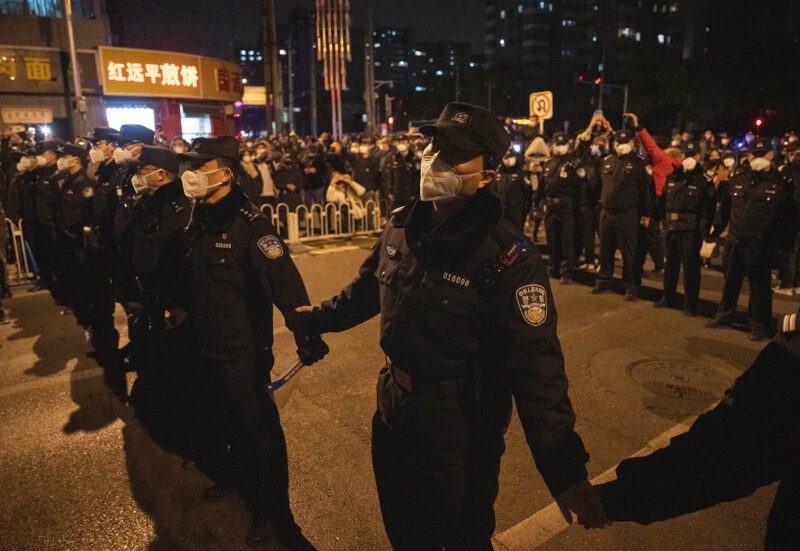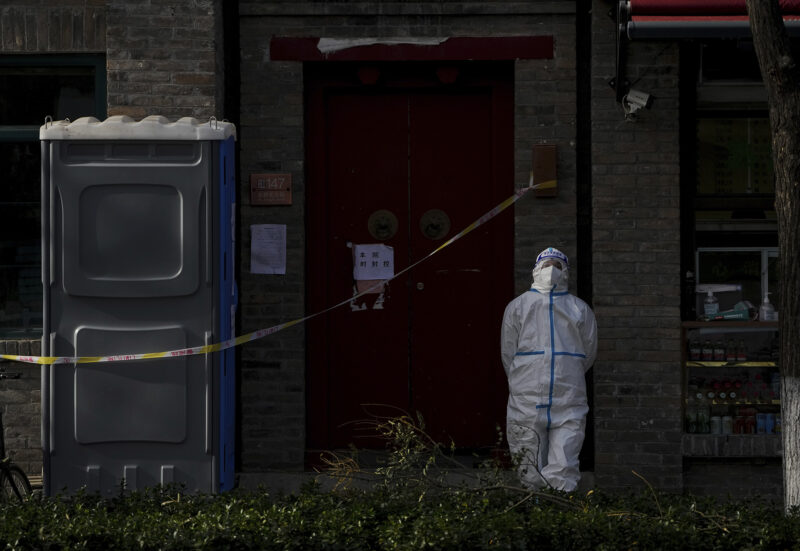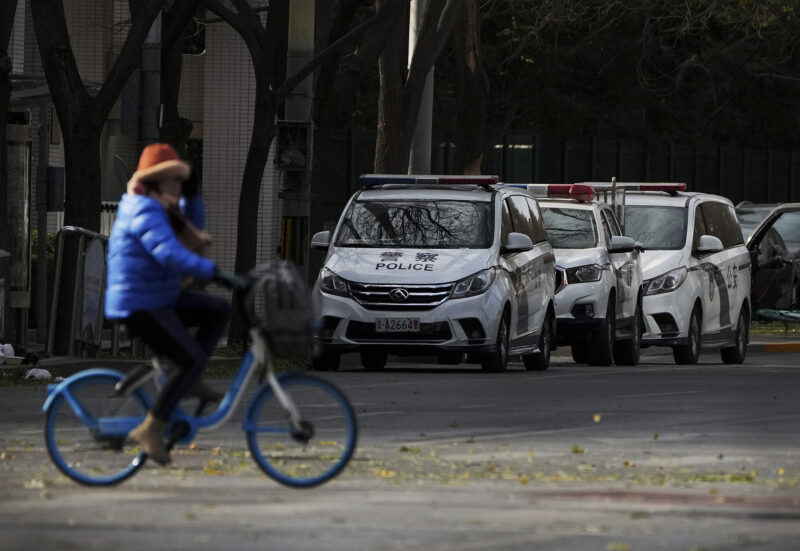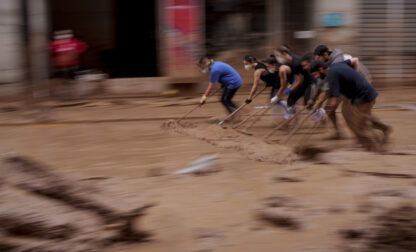It started with an apartment fire that many blamed on China’s harsh coronavirus measures, which AP Beijing staff picked up early on. Dake Kang, who has covered the region closely for the past five years, scored an early interview with a relative of victims of the fire, beating out competitors. By reaching out to people on the ground online, Taipei-based writer Huizhong Wu confirmed protests that had followed, adding critical eyewitness accounts.
Within 24 hours of the fire, Chinese social media was swamped with anti-government messages – people angry at restrictions that have locked them into their homes for weeks or months at a time, and critically blaming the leadership. In a country where media is restricted, residents are surveilled, and individuals are punished for speaking out against authority, this was extraordinary.
Then the unrest started to spread. Wu reached out online to source and verify photos and videos,including the slogan that shocked the world,“Xi Jinping,step down.” Kang posted his contact information on Twitter,allowing dozens of people on the ground to contact him with updates. As the protests unfolded, Kang flew to Shanghai where anti-government demonstrations had flared,while photographers Han Guan Ng and Andy Wong went to a protest in Beijing to snap photos and shoot video. Beijing-based videojournalist Emily Wang Fujiyama coordinated efforts to verify and put out video,while Beijing-based business writer Joe McDonald wove together the reporting and published updates swiftly.
Wu and Kang kept in touch with sources and started writing up the story confirming protests had unfolded nationwide. Crucial to their reporting was keeping sources safe, despite a sophisticated digital surveillance apparatus.
All the while, the team was navigating political sensitivities and a constantly shifting security environment for journalists that included harassment and even detention. One AP journalist was detained and later released.
AP published powerful images from Shanghai calling for Xi Jinping to step down. Wu scored a powerful image of a group of police pushing one man down – his face was pressed into the ground, mouth covered with a hand.
As protests spread quickly to other cities,Kanis Leung,Zen Soo and Alice Fung quickly moved to cover Hong Kong residents protesting at a university and the city’s business district.
With many of the protests inaccessible due to coronavirus restrictions,AP’s global teams,with the help of Tian Ji MacLeod in Bangkok,searched and filed UGCs around the clock. These include massive police presence,students at Chinese leader Xi Jinping’s alma mater Tsinghua University demanding an easing of anti-virus controls,and protests in other major cities including Chengdu.
For their swift,careful coverage of unprecedented demonstrations and their cooperation across borders,we are pleased to award the Best of the Week to staff in Beijing, Hong Kong and Bangkok.
Visit AP.org to request a trial subscription to AP’s video,photo and text services.
For breaking news, visit apnews.com.


